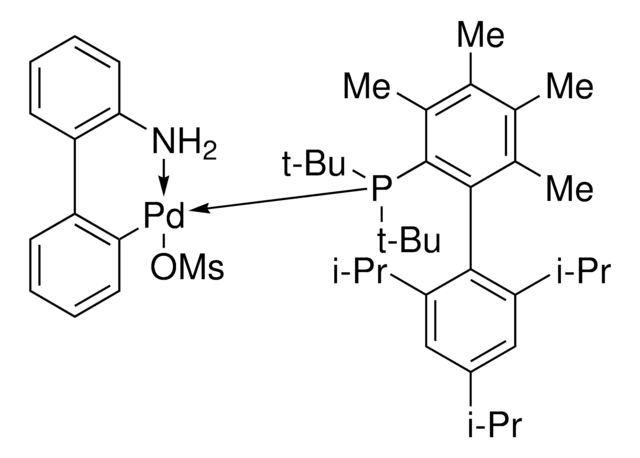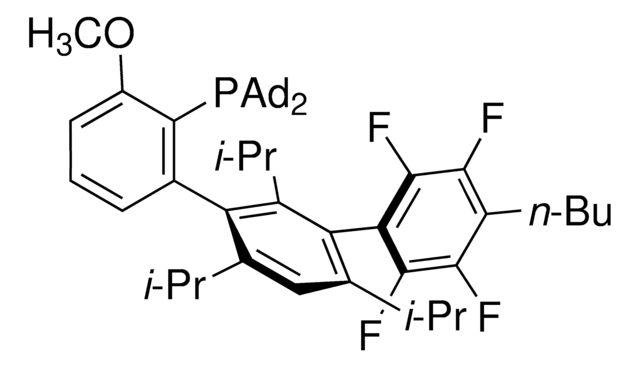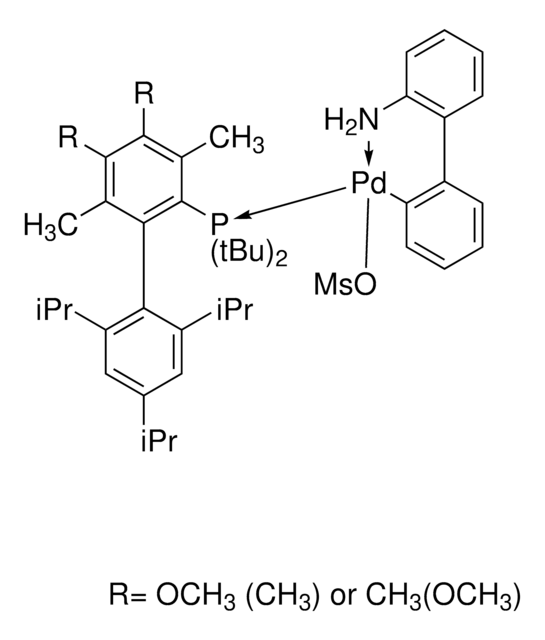675938
Me4tButylXphos
96%
Synonym(s):
2-Di-tert-butylphosphino-3,4,5,6-tetramethyl-2′,4′,6′-triisopropyl-1,1′-biphenyl, Tetramethyl di-tBuXPhos, Tetramethyl tBuXPhos
About This Item
Recommended Products
Quality Level
assay
96%
form
solid
reaction suitability
reaction type: Cross Couplings
reagent type: ligand
reaction type: Buchwald-Hartwig Cross Coupling Reaction
reagent type: ligand
reaction type: C-X Bond Formation
mp
168-172 °C
functional group
phosphine
SMILES string
CC1=C(C)C(C)=C(C)C(C(C(C(C)C)=CC(C(C)C)=C2)=C2C(C)C)=C1P(C(C)(C)C)C(C)(C)C
InChI
1S/C33H53P/c1-19(2)26-17-27(20(3)4)30(28(18-26)21(5)6)29-24(9)22(7)23(8)25(10)31(29)34(32(11,12)13)33(14,15)16/h17-21H,1-16H3
InChI key
RCRYEYMHBHPZQD-UHFFFAOYSA-N
Related Categories
Application
Legal Information
Storage Class
11 - Combustible Solids
wgk_germany
WGK 3
flash_point_f
Not applicable
flash_point_c
Not applicable
Choose from one of the most recent versions:
Already Own This Product?
Find documentation for the products that you have recently purchased in the Document Library.
Customers Also Viewed
Articles
Buchwald and coworkers develop versatile phosphine ligands for Pd-catalyzed C–N bond formation; enhancing synthetic reactions for 20 years.
Buchwald phosphine ligands for C-C, C-N, and C-O bond formation.
Related Content
Explore reliable, premium grade catalysis materials for your pharma or industrial project. Specialty chemicals and formulations are available in bulk quantities and volumes from a few grams to multi-metric tons with complete documentation to simplify your leap from development to commercialization.
Our team of scientists has experience in all areas of research including Life Science, Material Science, Chemical Synthesis, Chromatography, Analytical and many others.
Contact Technical Service













